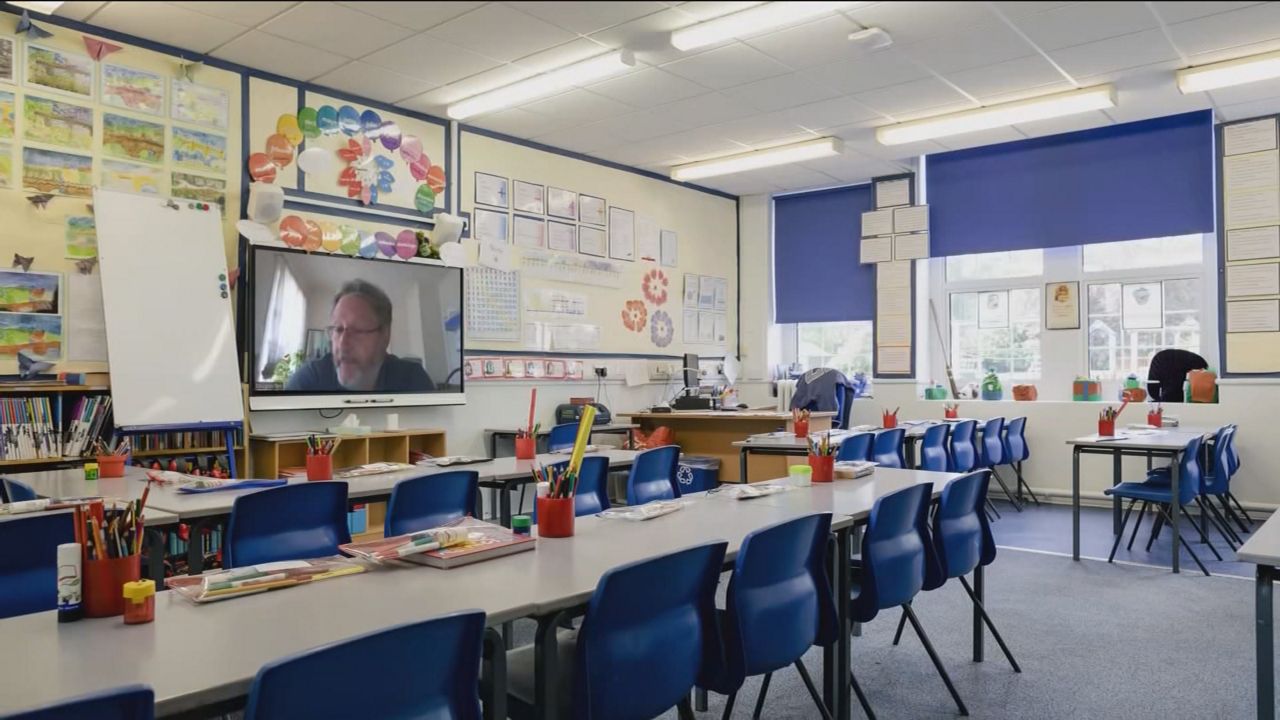RALEIGH, N.C. — ChatGPT is an advanced artificial language program that is blowing people’s minds with how it can understand and respond like a human. It’s been trained on so much data, you can talk or command it to write about almost anything.
From simple and complex questions to language translations, poems, songs, computer code, math problems or essays, its versatility is turning heads. The AI chatbot's become a hot topic among educators. School systems in North Carolina and across the country have blocked it from school networks and devices, fearing students could turn to it to do their homework.
ChatGPT is an artificial intelligence chatbot that appears to understand and respond to you like a human
School districts across the country have filtered it from school devices and networks to try to prevent students from using it to write papers, solve math problems or other assignments
Teachers are grappling with the potential impacts on education and learning
“I think that’s utterly ineffective,” said Kenny Felder, a teacher of over 20 years at Raleigh Charter High School. “Whether the students can get it through the school Wi-Fi, they can still get it on their phones as long as they have reception. I don’t think you can put the genie back into Pandora’s box.”
A recent survey from Study.com found nine out of 10 students were aware of ChatGPT. Over 89% of students reported using ChatGPT to help with a homework assignment.
Curious about its capabilities, I had Felder email me an essay assignment he gave his honors systems class. The topic was about the pros and cons of taking a gap year. I entered the assignment into ChatGPT and within a minute, had my paper. You can even ask the chatbot to make edits, word count or set the level at which you want it to write.
“It’s a very good essay. I’m very impressed,” said Felder after reviewing the AI’s work. “The grammar is perfect. It was all very, very clean, easy to follow.”
But it wasn’t perfect. ChatGPT often omits citations or attributions, and Felder’s attempts to verify the studies I asked it to incorporate were unsuccessful. Still, from his point of view, it produced an A paper.
“I was giving a lot of B’s and C’s and even some A’s to papers that were not as well written, not as well organized, not as creative, not as personal as this one,” Felder said.
When it came to math, it was often correct. Not only did it provide the answer, but also showed its work to arrive at the solution.
“I was utterly dazzled the first time I sat down. I thought this is technology that I didn’t think we would arrive at for decades,” said Felder, who designed and coded software before going into teaching.“I was utterly dazzled the first time I sat down. I thought this is technology that I didn’t think we would arrive at for decades,” said Felder, who designed and coded software before going into teaching.
Free to access on its creator’s (OpenAI) website, educators are facing a ChatGPT conundrum. It’s presenting new challenges around plagiarism, cheating and what they’re trying to teach.
“You could completely eliminate ChatGPT cheating if you just never let them (students) write at home, if you made them write everything here in front of you, and I’m not willing to do that,” Felder said. “The experience of writing something takes you two weeks or a month and a lot of research and a lot of thought, it's an incredibly valuable experience. And I’m not willing to deprive them of that just for the few people who are going to cheat.”
ChatGPT’s rise has some educators drawing parallels to when pocket calculators became commonplace. No longer having to do calculations by hand, there were people who considered it cheating decades ago. Now students use it regularly for standardized tests and few, if any, people think twice.
“If everyone has a calculator, I can’t grade you on your ability to multiply 36 by 45 anymore and that’s a good thing,” Felder said. “Innovations in education have forced teachers to reexamine what they’re trying to achieve.”
It’s a technological shift that has Felder feeling both nervous and excited. He believes the key isn’t to fear AI tools like ChatGPT but to learn how to harness it.
“I’ve been forced to create higher level thinking, higher level problems, higher level education,” Felder said. “And that’s preparing students for the 21st century because once they leave school and have jobs, they’ll have access to ChatGPT.”
Like the internet did previously, he expects AI tools like ChatGPT to shape education and learning in ways that are beyond ours and even its creators' imagination.









